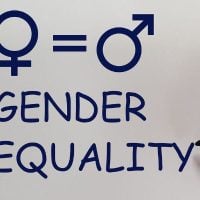Deadline: 18-Jan-23
Applications are now open for the Clean Cities, Blue Ocean (CCBO) grants program which is designed to identify and implement locally-led, sustainable solutions and approaches that support the program’s objectives and combat ocean plastics pollution directly at the source.
Design and implement a community-based waste separation at source model to promote the 3Rs and build municipal SWM capacity in the municipalities of Las Terrenas and Samaná, Dominican Republic.
Purpose
- CCBO has selected the Province of Samaná as its primary engagement site in the Dominican Republic to implement, test, and scale solutions over the life of the program – targeting the municipalities of Las Terrenas and Samaná. CCBO intends to learn from the experiences gained from pilot projects and share lessons and best practices with the national/provincial/municipal governments, civil society organizations, and the private sector.
- CCBO seeks to prevent single-use plastics and other waste from entering Samaná’s waters and other natural environments. Making progress towards this goal requires building a sustainable enabling environment with appropriate regulations, promoting the 3Rs, better access to recycling markets and reuse opportunities, enhanced operating systems for the existing SWM infrastructure combined with more efficient equipment and technologies, and raising the municipal governments and public’s awareness on waste reduction and waste separation at source as fundamental elements.
Overarching Objectives
- The overarching objectives of this grant are to achieve the following:
- Develop an SBC program, intimately linked with the municipal waste management system, that supports waste segregation behaviors, addresses issues, and works with existing community organizations and structures.
- Based on prior research, and in cooperation with the municipal governments and community organizations, develop information and communication materials and carry out activities to encourage participation by households and businesses.
- Facilitate the development of a neighborhood-based strategy to promote waste separation at source in consultation with key local stakeholders (municipal government SWM departments, community residents and businesses, civil society organizations, recyclers, etc.).
- Provide technical assistance support to the municipality’s SWM department to re-organize waste collection schedules and other key pilot project activities.
- Increase municipal collection of segregated waste by carrying out a community-based pilot model that can be replicated at the provincial level.
- Identify neighborhood associations, community groups, churches, and/or individual leaders to lead capacity building and monitoring activities in the selected neighborhoods.
- Train neighborhood leaders (training of trainers) and municipal SWM department staff on conducting community outreach among households and businesses.
- Identify waste generating structures in the project neighborhoods to determine the need for modifying collection routes and schedules.
- Collect information from households and businesses to understand how they are currently segregating waste at source, what practices they are willing to assume, and what barriers or challenges they might face with new practices that can affect social and behavior change activities.
- Train households and businesses how to recycle plastic and other waste materials, manage organic waste through composting, and to collaborate with municipal SWM units on trash collection.
- Promote cooperation and regular communication between the municipal SWM department and all project stakeholders.
- Support the municipal government and/or neighborhood associations and other community institutions to organize a regular forum where residents of focal neighborhoods can share their experiences with waste segregation and composting.
- Promote linkages by residents of the focal neighborhoods with private sector entities involved in the recycling sector and facilitate income generation opportunities for local independent waste collectors and small recycling businesses.
- Facilitate implementation of a 3R waste separation at source activity within the two municipal government facilities initiated and led by municipal employees.
- Evaluate the pilot project model and results at mid-point (approximately month 8) in collaboration with project stakeholders and modify the methodology, as required.
- Support the municipal SWM departments’ expansion of the revised pilot project model into second neighborhoods in both Las Terrenas and Samaná.
- Document outcomes and learnings and disseminate the results from the two pilot projects to other municipalities within the Province of Samaná.
Eligibility Criteria
- Eligible applicants include:
- Non-US Non-Governmental Organizations;
- US Non-Governmental Organizations;
- Non-Profit International technical cooperation institutions and entities;
- Civil society organizations (CSO);
- Private foundations and universities;
- Private enterprises or firms (profit is not allowed under CCBO grants); and
- Business associations.
- CCBO will assess potential grantees using a pre-award survey to ensure the applicant possesses and maintains the necessary capabilities to execute the grant activity. Eligible applicants must demonstrate the following:
- Be legally registered to operate in the Dominican Republic;
- Be in good standing with all civil and fiscal authorities in the Dominican Republic;
- Sign applicable assurances and certifications; and
- Have a UEI number or be willing to register for a UEI number.
Ineligible
- Ineligible Entities The following entities are not eligible for CCBO grant funding:
- Local, regional, or national government entities;
- Private Voluntary Organizations (PVO) that have not registered as such with USAID;
- Political parties and their subsidiaries or affiliates;
- Organizations that have a negative determination on the SAM, UN 1267, or OFAC Blocked Persons Lists;
- Organizations that promote or engage in illegal activities or anti-democratic activities;
- Faith-based organizations that are not in compliance with Equal Protection for the Laws of Faith-based Community Organizations;
- Entities affiliated with Tetra Tech, its officers, directors, or employees, or its subcontractors and their officers, directors, or employees; and
- Public International Organizations (PIO).
Ineligible Activities CCBO will NOT fund the following types of activities:
- Construction and improvements, renovations, alterations, and refurbishments as defined in ADS 303maw;
- Activities that duplicate the activities of other United States government (USG)-supported program(s) conducted by other organizations in CCBO target regions;
- Activities that are inconsistent with international standards of human rights or with democratic goals of racial and ethnic tolerance and harmony;
- Ceremonies, parties, celebrations, or “representation” expenses except for those that are specified in the grant (for example, opening ceremonies) to promote the visibility of USAID in the eyes of the communities that USAID is trying to serve;
- Involuntary sterilization programs; and
- Activities outside the contract scope and/or not approved by USAID
For more information, visit CCBO.









































